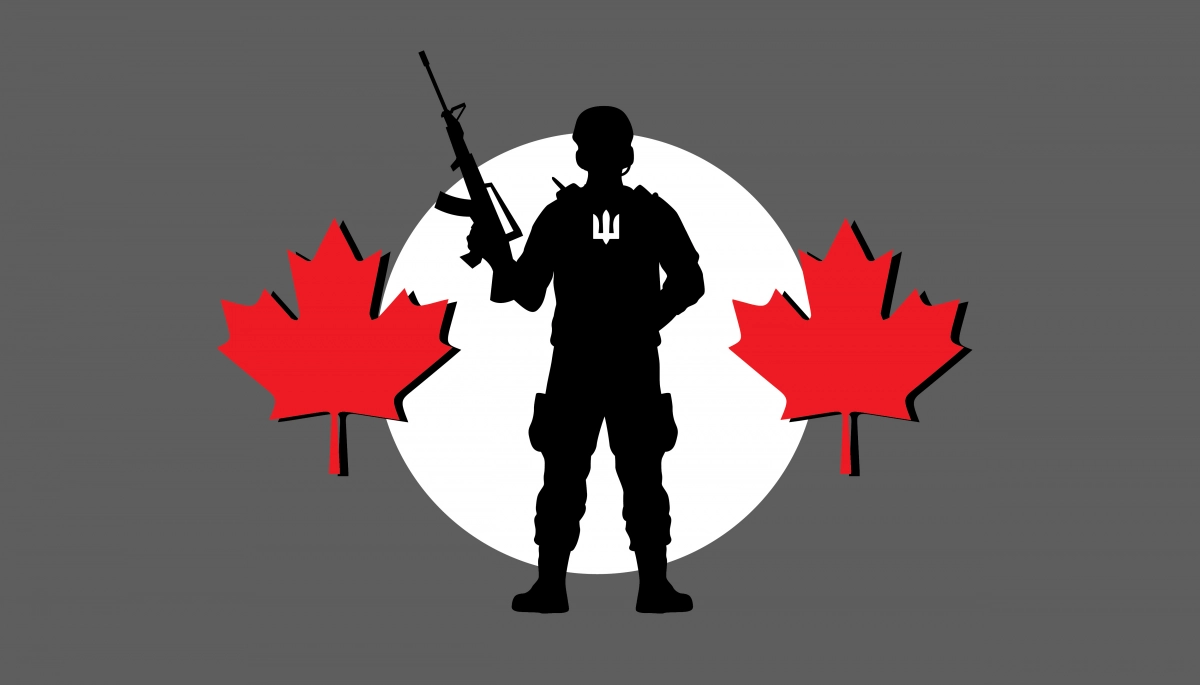Since February 24, 2022, Detector Media has been monitoring the Ukrainian segment of social networks as well as the Kremlin media and documenting the chronicle of Russian disinformation about Russia’s war against Ukraine on a daily basis. Over time, we started making regular reviews. Read the latest ones here: June 5-11, June 12-18, June 19-25, June 26-July 2, July 3-9, July 10-16, July 17-23, July 24-30, July 31-August 5, a summary for ten months, and a review of the most ridiculous fakes in the year of the great war.
From August 7 to 12, 2023, Detector Media analysts recorded more than 30 disinformation cases. During this period, propagandists claimed that the West wanted to get rid of President Zelenskyy because Ukraine was attacking Moscow with drones, that a military shipment bound for Ukraine had exploded in a Turkish port, that Ukrainians in Canada would be drafted into the Armed Forces of Ukraine; and that the United States was sending drugs to the Ukrainian military.
“The West Wants to Eliminate Zelenskyy”
Manipulative information circulated widely on social media and through propaganda channels, suggesting that the United States was discontented with President Zelenskyy’s policies due to his “constant attacks on Moscow.” There were insinuations that President Volodymyr Zelenskyy was ruling arbitrarily and that Ukraine was a hub of lawlessness. This propaganda went so far as to suggest that Western leaders secretly desired to “oust Zelenskyy,” implying the United States was scouting for a successor. To back these claims, propagandists pointed to an article from the American outlet, Politico.
Yet, the actual content of the article, titled Ukraine’s plan if Russia assassinates Zelenskyy, does not allude to any American plots against Zelenskyy. Instead, it explores potential repercussions if there were a Russian-led assassination attempt on the Ukrainian President. The authors highlight that the potential for such an assassination by Russian forces cannot be overlooked, both in Ukraine and globally. This is primarily because President Volodymyr Zelenskyy isn’t merely a ceremonial leader; he’s instrumental in rallying international backing against Russian aggression. Since the onset of the full-scale invasion, there have been over a dozen attempts by Russians to eliminate Zelenskyy physically.
The underlying motive of such propaganda is to amplify societal unrest, perpetuating the unfounded narrative that Western nations, particularly the U.S., are discontented with the Ukrainian leadership. Moreover, it suggests that the U.S., rather than the Ukrainian populace, determines who can be president of Ukraine and when. These propaganda efforts further attempt to suggest that the drone strikes on Moscow are a point of contention not just for Russia but for Western countries as well.
“Military Aid to Ukraine Blown Up in a Turkish Port”
Anonymous Telegram channels broadcasting pro-Kremlin rhetoric are spreading the fake that the explosion of grain tanks in the Turkish port of Derince on August 7 was allegedly caused by weapons intended for the Ukrainian military. “Or maybe there was not only grain but also deadly ‘toys’ for the UAF?” one Telegram channel wrote.
The explosion occurred at the Turkish Grain Board’s elevator during a grain vessel’s offloading. It was attributed to either a “dense dust cloud” or a “chemical reaction.” Yet, no Turkish or international media outlets reported the presence of arms or military equipment at the blast site. Turkey’s Minister of Agriculture and Forestry, İbrahim Yumaklı, clarified that the explosion stemmed from “technical factors resulting from dust accumulation.”
Such speculative narratives by Russians aim to undermine Western backing for Ukraine. The insinuation is that anyone aiding Ukraine with arms should anticipate their shipments detonating during transit, leading to infrastructural damage. Additionally, these fake reports by Russian agitprop attempt to paint a picture of saboteurs operating against Ukraine, hinting at an extensive Russian agent network.
“Ukrainian Soldiers on American Drugs”
Fake news was spread on Russian and Lithuanian Facebook segments and in anonymous Telegram channels broadcasting pro-Kremlin rhetoric, alleging that the Ukrainian military received drugs from the United States to embolden them in battle. A video displays a man in military attire holding a package marked with the USAID logo, listing chemicals such as methylphenidate and ephedrine. Accompanying the video is the U.S. flag and a caption reading “Thank you very much.” Furthermore, it was claimed that the 79th Air Assault Brigade of the Ukrainian Armed Forces received ephedrine, a methamphetamine precursor, as part of U.S. aid.
It’s vital to note that these chemicals are used in pharmacology and can be prescribed. The European Medicines Agency (EMA) has sanctioned numerous drugs with methylphenidate as the key ingredient, while ephedrine is a common remedy for nasal congestion. Also, there’s no mention of humanitarian aid to the Ukrainian military on the USAID website. Lieutenant Yaroslav Chepurnas, spokesperson for the 79th Air Assault Brigade, has verified the video’s inauthenticity. This isn’t the first instance of the Russian propaganda machine circulating false claims about Ukrainian soldiers being administered psychotropic substances or being widespread drug users.
By spreading fake content, propagandists are trying to discredit the Ukrainian Defense Forces, portray the Ukrainian military as drug addicts, create a strong association with certain social ills, undermine the assistance provided by Western partners to Ukraine, and divert attention from similar real problems in their own army.
“Mobilization of Ukrainian Diaspora in Canada”
On social media, propagandists are spreading a fake news story that Ukrainian Defense Minister Oleksiy Reznikov said he would ask the Canadian government to help mobilize members of the Ukrainian diaspora to participate in the war. “They are Canadian citizens, but first and foremost Ukrainians. We will ask the Canadian government to send 30,000 men of military age to us,” the Defense Minister allegedly stated. Advisor to the Minister of Defense of Ukraine Yuriy Sak called this claim a “cheap fake.” When questioned by Reuters, Global Affairs Canada confirmed that they hadn’t received any such requests from Ukraine.
The objective behind these false statements is multifold: to push the narrative that Ukraine is so depleted of fighters that they have to resort to calling upon “foreign mercenaries” (like the so-called American Mozart Group, painted by propagandists as the opposite of Wagnerians), and even the LGBTQI+ community, to join their defense. For a Russian audience, this disinformation bolsters the claim that Russia is at war not just with the Ukrainians but with NATO forces. For Ukrainians, it sets unrealistic expectations.
At the beginning of the full-scale invasion, 550 Canadians traveled to Ukraine, enlisting with the International Legion of Territorial Defense of Ukraine. The influx was so significant that a separate Canadian battalion was established.
“Ukraine Sells Frozen Organs to NATO”
Propagandists are spreading disinformation claiming that Ukraine is allegedly the world leader in illegal transplantation. In support of this, they come up with a number of fakes, such as that in June 2023, representatives of the Ministry of Health of a NATO country allegedly agreed with Ukraine to supply a refrigerated car with human organs and body parts most commonly used in transplantation, including eyes, certain kinds of bones, tissues, hearts, and livers.
In truth, ever since independence, Ukraine has struggled to establish its transplantation infrastructure. It was only in 2018 that the nation enacted legislation outlining that organs can only be sourced from a deceased individual if they had granted permission for transplants while alive.
Moreover, for decades, Ukrainians had to seek organ transplants abroad. In the years leading up to the full-scale invasion, Belarus, which aligns more with Russia, had become the primary hub for transplants. Intriguingly, Russian propagandists haven’t leveled similar accusations at Belarus, choosing to single out Ukraine instead. There’s a longstanding propaganda trope that nations embroiled in conflicts are hubs for illegal organ trade. For instance, during the 1990s Balkan conflicts, the Kosovo Liberation Army faced unproven accusations of organ harvesting and trading.
The false narrative that Ukraine is a “haven for illegal organ harvesting” is a recurring theme among the “medical” propagandists, who weave tales of covert biolabs, weaponized mosquitoes, and American experiments on Ukrainian psychiatric patients. Previously, these propagandists claimed Ukrainian troops in Odesa were being turned into “post-mortem donors” and that pro-Russian citizens in the Donetsk and Luhansk regions were falling prey to “illegal organ harvesters.” By peddling these tales, the intent is to paint Ukraine as a lawless state and Ukrainians as brutal individuals trading their soldiers’ organs on the black market.



